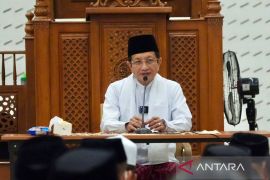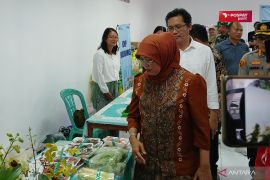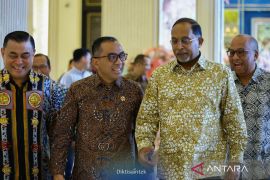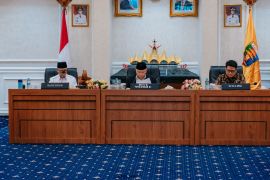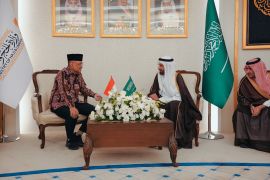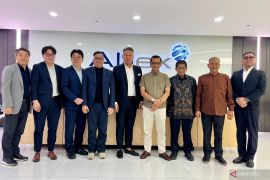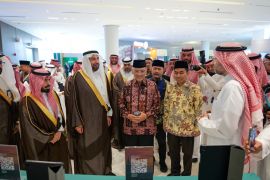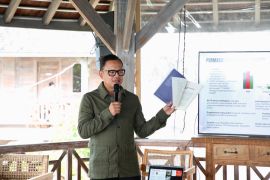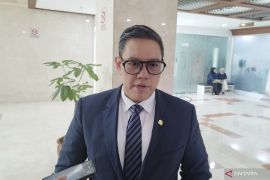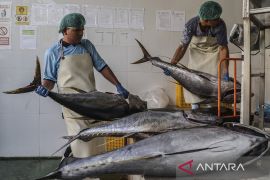The government believes trains are a solution to the problem of transportation congestion that arises due to the other effects of economic growth. This is especially true in big cities that are the industrial and business hub.
Trains are chosen, as they are a safe, comfortable, and affordable mass transportation mode. They are also one of the modes of mass transportation used in major cities in the world to overcome congestion, resulting from human mobilization as an impact of economic growth.
With the mode of train transportation in major cities in Indonesia then being integrated with other regions, the burden of population density in urban areas will be reduced. Hence, it can also lower the potential for congestion.
The selection of trains as a mode of mass transportation is not without reason. In addition to being efficient and inexpensive, trains are not a new means of transportation for the people of Indonesia. In addition, Indonesia has mastered railroad technology.
Another effect arising from the high demand for rail transportation modes in reducing the potential for congestion is to drive the domestic railroad industry, for which PT Kereta Api (Persero), or commonly known as PT INKA (Persero), comes into the picture.
As the only railroad manufacturing company in Indonesia and also the ASEAN, PT INKA is ready to respond to the challenges of transportation needs.
So far, 100 percent of the needs of domestic railroad facilities have been produced at PT INKA, both passenger and freight trains.
INKA has readied a train order from the Ministry of Transportation, PT Kereta Api Indonesia (Persero), the regional government, and also the private sector.
Among these are official trains, inspection trains, Track Motor Cars (TMC), diesel rail trains, locomotives, passenger trains, freight trains, and the latest is a light rail train or LRT.
"Currently, in 2018, for domestic orders, INKA is working on the renovation of 438 train car units from PT KAI. The Soeta Airport, Minangkabau projects, private orders, Palembang LRT, and Jabodebek LRT are still in process," Senior Public Relations Manager, Secretariat , and Protocol of PT INKA (Persero) Hartono stated.
For the export market, INKA is working on orders from Bangladesh, Sri Lanka, Thailand, and the Philippines, with a project contract value of trillions of rupiah.
With the large number of orders that PT INKA has worked on, it has automatically increased the income earned by the state-owned company.
PT INKA (Persero) in 2017 succeeded in earning revenue of Rp2.58 trillion, or an increase of 37 percent over the previous year. The average sales growth over the past five years had reached 22 percent.
With sales continuing to increase, it has also boosted the company`s red-plated profit. In the last five years, PT INKA (Persero) managed to record significant net profit growth.
In 2017, INKA had recorded net profit of Rp75.25 billion, growing by 68 percent from the previous year`s figure.
"For 2018, the sales target set according to the work plan reaches Rp3.1 trillion. By the end of this year, Rp3.9 trillion has been reached," Hartono pointed out.
New Factory
PT INKA has received several train orders owing to its success in producing trains and locomotives. Hence, INKA is striving to boost its production capacity by planning to build a new factory in Ketapang Village, Kalipuro, Banyuwangi District in East Java.
Later, after the Banyuwangi factory is built, its production capacity can be targeted to be doubled from the existing factory in Madiun City at this time. Meanwhile, the plant uses 84 hectares of land, which is currently a synergy forged between PT INKA and PTPN XII.
Later, the modern factory is expected to become the second "workshop" for train assembly facilities after the "workshop" in Madiun.
The new plant is needed to boost production capacity in order to support the development and progress of the national railway industry.
In addition, INKA`s new factory in Banyuwangi aims to answer the challenges of the needs of railroad facilities from foreign markets.
Moreover, PT INKA (Persero) has produced trains for countries in Asia and Africa, including the Philippines, Bangladesh, and Senegal.
Meanwhile, Banyuwangi was selected, as the area has access to ports, and wages for workers are not much different from those in Madiun region.
The workshop, located in Banyuwangi, being in proximity to the Tanjung Wangi freight port managed by PT Pelindo III, is expected to strongly support PT INKA in the process of sending train orders by sea, both for export and domestic needs outside Java.
Hartono said that with the expansion of the second factory in Banyuwangi, INKA can produce four trains or cars a day.
"In terms of production facilities, currently, PT INKA has increased its capacity through revitalizing production facilities in workshops in Madiun and also new plants in Banyuwangi," he noted.
According to data, the production speed of PT INKA in 2017 is one train or carriage in a day, and by the end of 2018, it is expected to be 1.5 trains or cars daily.
"After the factory in Banyuwangi is built, a total of four trains will can be produced per day," he stated.
Targeted at the start of 2019, the work of building a new plant in Banyuwangi can begin with a one-year construction period.
The current increase in demand for railroad production has made PT INKA`s (Persero`s) performance and assets witness a significant growth, with the value of assets in 2017 reaching Rp6.04 trillion.
This increase is due to the fact that INKA is currently believed to be working on several major projects, both domestically and abroad.
Editing by Yosep Haryadi
Reporter: Antara
Editor: Suharto
Copyright © ANTARA 2018

